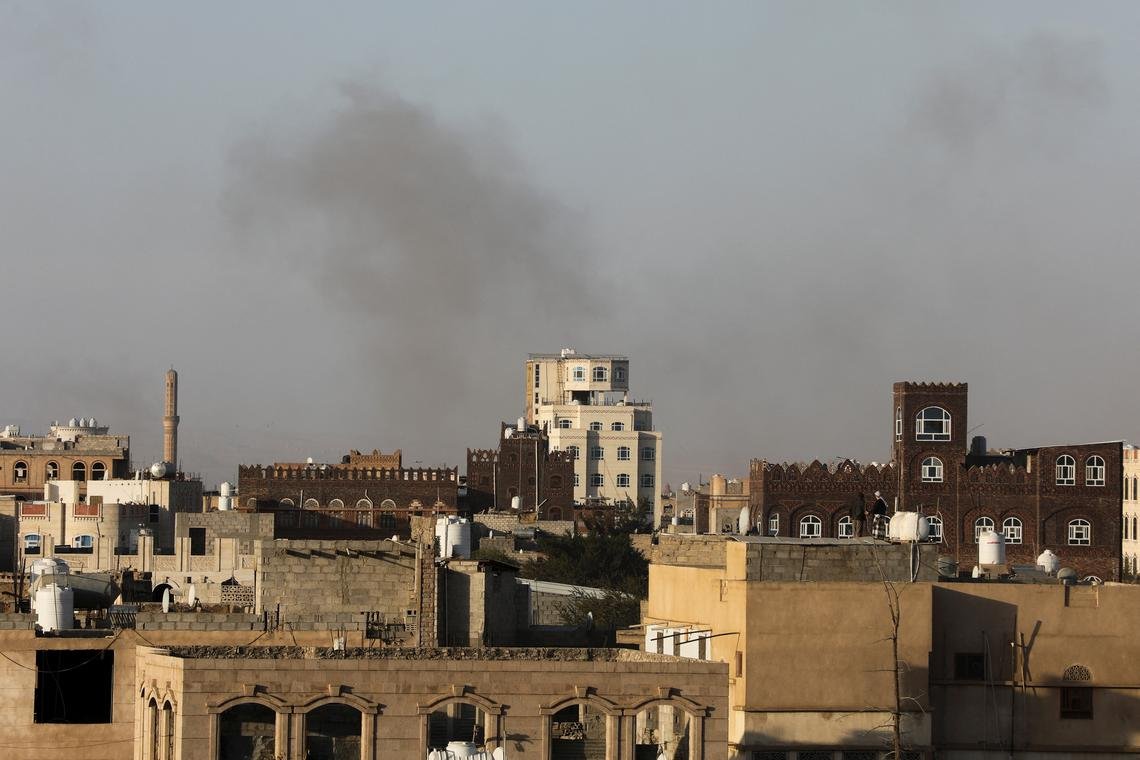JERUSALEM – Israel struck multiple targets linked to the Iran-aligned Houthi movement in Yemen on Dec 26, including Sanaa International Airport, and Houthi media said at least six people were killed.
The head of the World Health Organisation, Dr Tedros Adhanom Ghebreyesus, said he was about to board a plane at the airport when the facility came under attack. A crew member on the plane was injured, he said.
The Israeli military said that in addition to striking the airport, it also hit military infrastructure at the ports of Hodeidah, Salif and Ras Kanatib on Yemen’s west coast.
It also attacked the country’s Hezyaz and Ras Kanatib power stations.
The Houthi-controlled Saba news agency said that three people were killed in the strikes on the airport and three were killed in Hodeidah, while 40 others were wounded in the attacks.
Later on Dec 26, the Houthis said they were ready to respond quickly to the attack and meet “escalation with escalation”, the Houthi-run Al Masirah TV reported.
Houthis have repeatedly fired drones and missiles towards Israel in what they describe as acts of solidarity with Palestinians in Gaza.
Israeli Prime Minister Benjamin Netanyahu said in an interview with Channel 14 that Israel was only at the beginning of its campaign against the Houthis.
“We are just getting started with them,” he said.
The Prime Minister has been strengthened at home by the Israeli military’s campaign against Iran-backed Hezbollah forces in southern Lebanon and by its destruction of most of the Syrian army’s strategic weapons.
Dr Tedros said he had been in Yemen to negotiate the release of detained UN staff and to assess the humanitarian situation in Yemen.
“As we were about to board our flight from Sanaa… the airport came under aerial bombardment. One of our plane’s crew members was injured,” he said in a statement.
“The air traffic control tower, the departure lounge – just a few metres from where we were – and the runway were damaged,” he said, adding that he and his colleagues were safe.
There was no immediate comment from Israel about the incident.

WHO chief Tedros Adhanom Ghebreyesus said he had been in Yemen to negotiate the release of detained UN staff and to assess the humanitarian situation there.PHOTO: REUTERS
UN Secretary-General Antonio Guterres described the Israeli air strikes on Dec 26 as “especially alarming” after “a year of escalatory actions by the Houthis”, said a UN spokesperson.
Mr Guterres is concerned about the risk of further escalation, and is calling for all parties concerned to cease military actions and exercise utmost restraint, the spokesperson said.
“He also warns that air strikes on Red Sea ports and Sanaa airport pose grave risks to humanitarian operations at a time when millions of people are in need of life-saving assistance,” the spokesperson added.
The Houthis’ transport minister told Saba that both the airport and Hodeidah port would resume normal operations from Dec 27.
More than a year of Houthi attacks have disrupted international shipping routes, forcing firms to re-route to longer and more expensive journeys that have, in turn, stoked fears over global inflation.
The UN Security Council is due to meet on Dec 30 over Houthi attacks against Israel, Israel’s UN Ambassador Danny Danon said on Dec 25.
On Dec 21, Israel’s military failed to intercept a missile from Yemen that fell in the Tel Aviv-Jaffa area, injuring 14 people. REUTERS

A screengrab from footage released by the Houthi Ansarullah Media Centre that reportedly shows the destruction of a power station in Yemen’s Hodeidah, following the Dec 26 Israeli strikes.PHOTO: AFP
Join ST’s Telegram channel and get the latest breaking news delivered to you.
